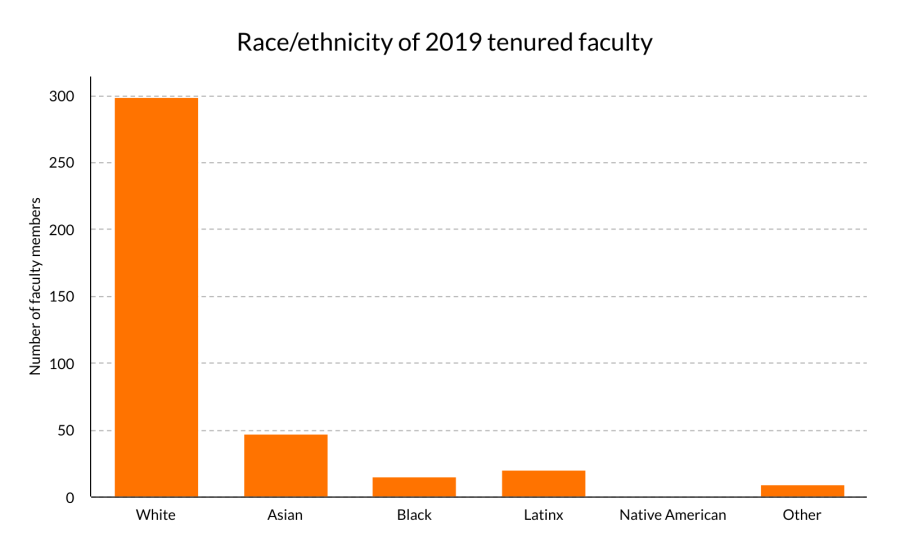Many colleges implement student-focused plans to raise racial and ethnic diversity. Meanwhile, diversity among faculty remains relatively static.
Faculty diversity initiatives have been in the works for decades, with colleges like Yale being pushed to diversify staff since the ‘70s. But progress is slow, and no single institution has implemented the “perfect” diversity plan.
Across the nation professors belonging to racial and ethnic minorities remain underrepresented, and faculty diversity still remains a crucial discussion in higher education.
“The homogeneous makeup of the professoriate proves that many institutions fail to keep pace with the demographic changes of their student bodies,” Bryan Betancur and Victoria Livingstone wrote in an Insider Higher Ed.
-
Students need people of color as role models.
College brings people from many backgrounds into one setting. Diversity among peers is growing at universities while, as mentioned, faculty diversity barely changes. Students need diverse role models to better understand how they interact with their peers.
In certain fields, such as STEM, the classics and fine arts, professors of color are more likely to be underrepresented. This may discourage students from minority backgrounds from pursuing certain careers, ultimately creating a cyclical lack of diversity. Faculty diversity allows more students to imagine their future.
“For one, such stories are inspiring; but more specifically, for members of groups that have been historically disenfranchised or marginalized, it is also about pride. I am repeatedly humbled by the number and volume of people who congratulate me, or my family, for completing college, studying science and obtaining my doctorate,” biologist Danielle Lee wrote in Scientific American.
-
Minority student enrollment and retention will likely increase.
Enrollment increases when a prospective student sees a diverse staff. This relates to the fact all students need role models, especially ones they can relate to on multiple levels, whether socioeconomically, socially, racially or ethnically. By diversifying faculty, more students will be connected to mentors who support a successful academic career.
Without that support system, students are more likely to fail classes or even drop out. A 2017 study showed that 46% of Hispanics and 38% of African-Americans completed degree or certificate programs within six years, compared to 67% of whites.
“While many factors can affect the academic achievement of students from underrepresented groups, studies frequently highlight the importance of a diverse faculty in ensuring that those students remain enrolled in school,” Betancur and Livingstone wrote.
-
It encourages minority students to further their education.
Beyond point two, when minority students finish their undergraduate education, they may follow the footsteps of their role models. Academic institutions which offer such role models can help create the next generation of diverse masteral and doctoral candidates.
-
It’s important to all institutions which create leaders.
The world is a diverse place, so future leaders need to be cognizant of its complexities. Institutions can better prepare leaders by offering a diverse learning environment. Students are an amalgamation of their teachers, parents and role models. The culmination of those influences will affect the future of society.
“A diverse faculty also holds the university accountable in ways that uplift people of color and center issues that are important to the large and growing communities of color across the nation,” wrote University of Pennsylvania professor Marybeth Gasman in a Washington Post opinion piece.
Gasman continued, “Although I have always thought it vital that our faculty be representative of the nation’s diversity, we are getting to a point in higher education where increasing faculty diversity is an absolute necessity and crucial to the future of our nation.”






















